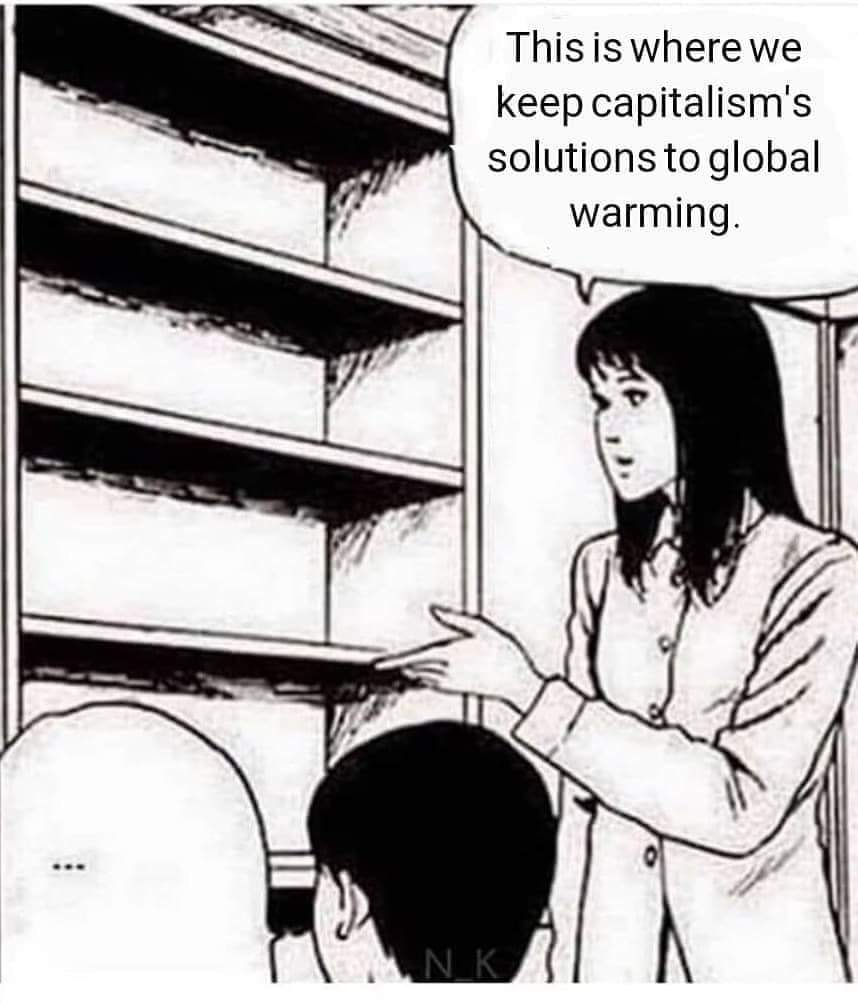Let’s look at another issue that for meany people are hidden by “common sense” daily #deathcult worship. That, our “common sense” wage labour is not voluntary and very much limits our freedom, workers are forced to sell their labour due to lack of alternatives for basic survival. The ability to choose between employers does not equate to freedom in any real sense, it limits freedom because workers have no meaningful alternative. Capitalist wage labour alienates workers from their labour, the products of their labour, their human nature, and other workers, This #alienation leads to a loss of freedom and self-realization.
“Wages are determined through the antagonistic struggle between capitalist and worker. Victory goes necessarily to the #capitalist. The capitalist can live longer without the worker than can the worker without the capitalist. Combination among the capitalists is customary and effective; workers’ combination is prohibited and painful in its consequences for them. Besides, the landowner and the capitalist can make use of industrial advantages to augment their revenues; the worker has neither rent nor interest on capital to supplement his industrial income. Hence, the intensity of the competition among the workers.” https://www.marxists.org/archive/marx/works/1844/manuscripts/wages.htm
Outside our “common sense,” the capitalist and #socialist perspectives offer different ideas of freedom:
Individual liberty: #Capitalism emphasizes individual freedom to make economic choices without government interference. The ability to own private property, engage in “voluntary” exchanges, and pursue profit in a free market economy. Consumers have the freedom to choose from a variety of goods and services produced by competing businesses. Freedom is defined as the absence of coercion or constraints imposed by others, especially the government.
Collective freedom: Socialism focuses on collective liberation from economic exploitation and the constraints of capitalism. Freedom can not be achieved without basic needs (food, housing, healthcare, education) guaranteed for all. Freedom as the ability to realize one’s potential, which requires access to collective decision-making over economic resources and production.
Capitalist freedom is tied to market mechanisms, socialist freedom involves democratic planning of the economy. Formal vs. real freedom distinguishes between formal (legal) freedom and real (material) freedom, capitalism only provides the former. Capitalism focuses on economic and political freedoms, while socialism expands the concept to include social and economic issues. The elimination of economic constraints on human potential, is in part what in the digital world the #openweb is about and the wider the humanistic path we need to take.

In this, we need to view justice and freedom as intertwined concepts. True freedom is defined to incorporate justice, equality, solidarity, and universal access to substantive (not just formal) freedoms. The #anarchist and socialist perspectives reject definitions of freedom that ignore this, our refreshed “common sense” needs to reflect this.
What tools would we need to take important parts of society away from this mess, hint, we are build them here https://opencollective.com/open-media-network